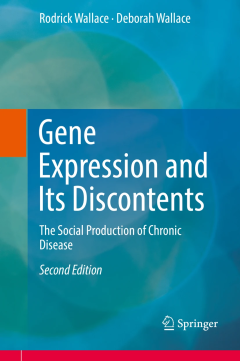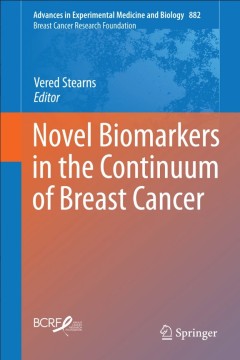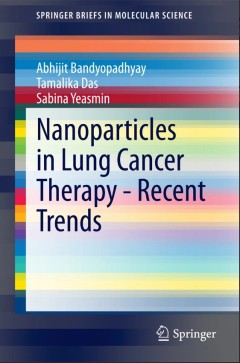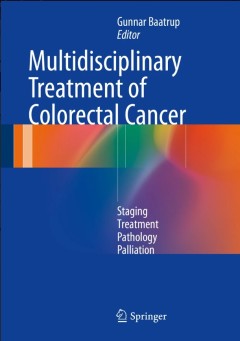Filter by

General Methods in Biomarker Research and their Applications
Professor Victor R. Preedy is a senior faculty member of King's College London (Professor of Nutritional Biochemistry) and King's College Hospital (Professor of Clinical Biochemistry). He is attached to both the Diabetes and Nutritional Sciences Division and the Department of Nutrition and Dietetics. He is also Director of the Genomics Centre and a member of the School of Medicine. Professor Pr…
- Edition
- -
- ISBN/ISSN
- 978-94-007-7695-1
- Collation
- -
- Series Title
- -
- Call Number
- 612.75

Obesity and Diabetes
This timely and clinically oriented book uniquely addresses the entire spectrum of treatment for severe obesity and diabetes. It thoroughly examines all aspects from robotic surgery to cell therapy, from the latest antidiabetic drugs to endoscopic procedures and devices, from appetite-inhibiting signals and nutrients to gastric arterial embolization. It offers objective and authoritative inform…
- Edition
- 1
- ISBN/ISSN
- 978-3-319-36101-7
- Collation
- X, 282
- Series Title
- -
- Call Number
- -

Gene Expression and Its Discontents
This book describes how epigenetic context, in a large sense, affects gene expression and the development of an organism, using the asymptotic limit theorems of information theory to construct statistical models useful in data analysis. The approach allows deep understanding of how embedding context affects development. We find that epigenetic information sources act as tunable catalysts, direc…
- Edition
- -
- ISBN/ISSN
- 978-3-319-48077-0
- Collation
- -
- Series Title
- -
- Call Number
- 616.992

Novel Biomarkers in the Continuum of Breast Cancer
This volume provides a comprehensive review of established and novel biomarkers across the continuum of breast cancer. The volume covers topics related to breast cancer risk and prevention, prediction of response to today’s standard therapies, and markers capable of influencing treatment decisions in the near future. Chapter authors combine their wide-ranging expertise to review the current s…
- Edition
- 1
- ISBN/ISSN
- 978-3-319-22908-9
- Collation
- XIX, 279
- Series Title
- Advances in Experimental Medicine and Biology
- Call Number
- -

Nanotechnology-Based Precision Tools for the Detection and Treatment of Cancer
This book discusses emerging nanotechnology-based tools that have the potential to dramatically impact cancer research, diagnostics, and treatment. Cancer is a complex, devastating, and debilitating disease and, although much progress has been made, novel, more effective diagnostic and treatment options are still needed, especially for advanced cancers. The ultimate goal is to detect cancer ear…
- Edition
- 1
- ISBN/ISSN
- 978-3-319-16554-7
- Collation
- X, 322
- Series Title
- Cancer Treatment and Research
- Call Number
- -

Nanoparticles in Lung Cancer Therapy - Recent Trends
This brief provides an insight into the present scenario of the role of nanotechnology in the diagnosis and treatment of lung cancer at an early stage. Currently, lung cancer is the subject of major concern owing to the very high mortality rate throughout the world. Most of the conventional treatment methods such as surgery, chemotherapy, radiotherapy, etc., fail to prolong life of the patients…
- Edition
- 1
- ISBN/ISSN
- 2191-5407
- Collation
- XVII, 65
- Series Title
- SpringerBriefs in Molecular Science
- Call Number
- -

Murine Models, Energy Balance, and Cancer
This volume provides a transdisciplinary and translational review of many of the leading murine models used to study the mechanisms, mediators and biomarkers linking energy balance to cancer. It provides a review of murine models that should be of interest to basic, clinical and applied research investigators as well as nutrition scientists and students that work in cancer prevention, cancer co…
- Edition
- 1
- ISBN/ISSN
- 978-3-319-16732-9
- Collation
- XV, 295
- Series Title
- Energy Balance and Cancer
- Call Number
- -

Myeloid-Derived Suppressor Cells and Cancer
The book starts with an introduction to and history of myeloid-derived suppressor cells (MDSCs), followed by a description of their differentiation, their role in the tumour microenvironment and their therapeutic targeting. It closes with an outlook on future developments. In cancer patients, myelopoiesis is perturbed and instead of generating immunogenic myeloid cells (such as dendritic cells,…
- Edition
- 1
- ISBN/ISSN
- 978-3-319-26819-4
- Collation
- IX, 102
- Series Title
- SpringerBriefs in Immunology
- Call Number
- -

Natural Killer Cells
To celebrate the 40th anniversary of the discovery of Natural Killer (NK) cells, this volume focuses on the recent advances in our understanding of NK cell development and differentiation and their acquisition of functional properties, as well as the latest models for NK-cell analysis in mice and applications in clinical medicine. NK cells have travelled a circuitous path from their initial des…
- Edition
- 1
- ISBN/ISSN
- 978-3-319-79554-6
- Collation
- VIII, 247
- Series Title
- Current Topics in Microbiology and Immunology
- Call Number
- -

Multidisciplinary Treatment of Colorectal Cancer:Staging – Treatment – Pa…
This book is intended as the equivalent of the Swiss Army knife for all members of colorectal cancer (CRC) multidisciplinary teams and those training in the fields of CRC management. It describes how to organize the team and explains the basic principles within the different disciplines involved in the treatment and care of CRC patients. Important, up-to-date knowledge is provided on visualizat…
- Edition
- 1
- ISBN/ISSN
- 978-3-319-35716-4
- Collation
- XVII, 289
- Series Title
- -
- Call Number
- -
 Computer Science, Information & General Works
Computer Science, Information & General Works  Philosophy & Psychology
Philosophy & Psychology  Religion
Religion  Social Sciences
Social Sciences  Language
Language  Pure Science
Pure Science  Applied Sciences
Applied Sciences  Art & Recreation
Art & Recreation  Literature
Literature  History & Geography
History & Geography